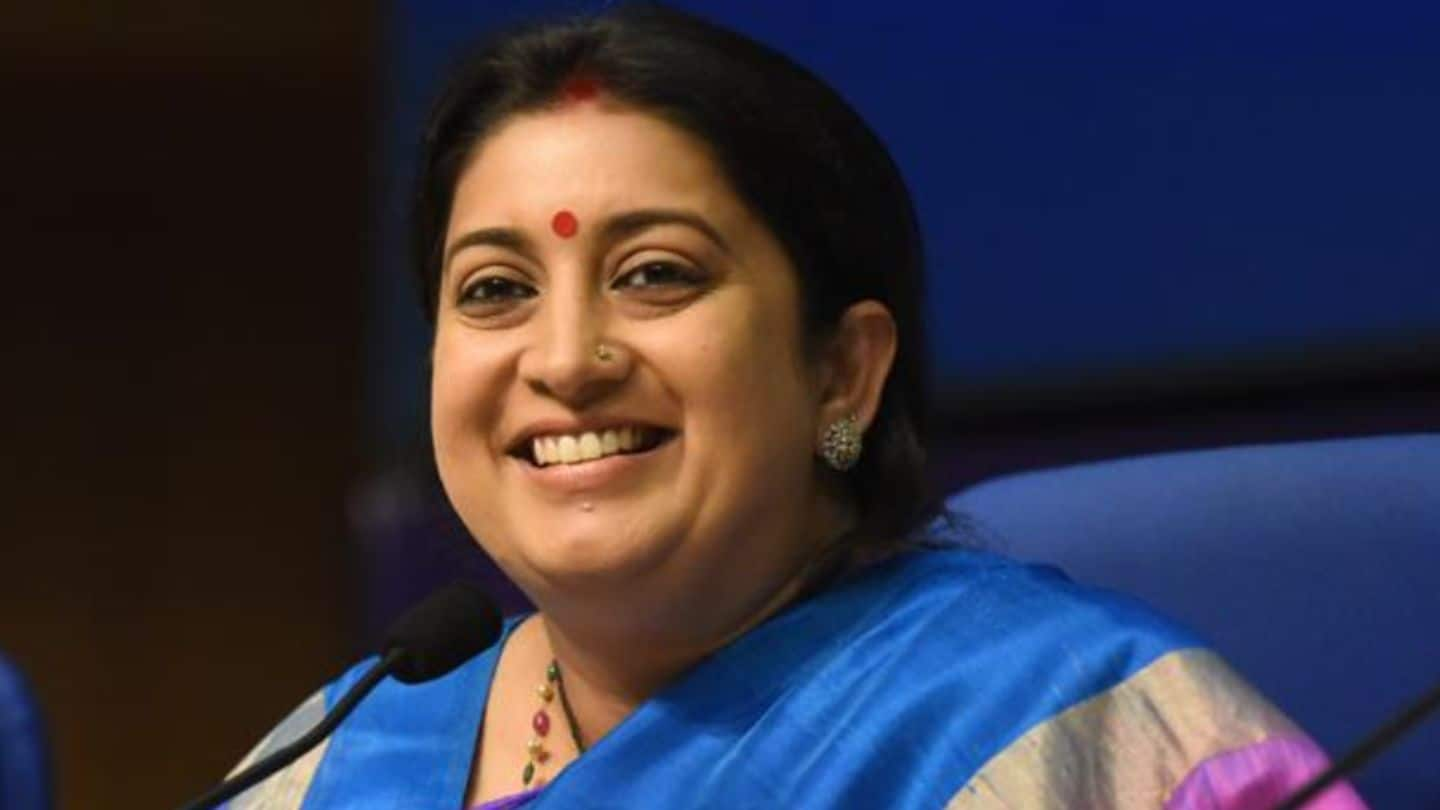
Smriti Irani's birthday: 6 interesting facts about the actress-turned-politician
What's the story
Smriti Irani once claimed "an ideological umbilical cord with BJP." Her grandfather was a swayamsevak and mother, a booth-activist. Though she has always portrayed that her ties to BJP are old and tested, her rise in the party is anything but traditional. She has traversed from being a television superstar to political firebrand with élan. On her 42nd birthday, here are some interesting facts.
Early days
Born in a middle-class family, Smriti had a difficult childhood
Smriti is the eldest of three daughters, born to Shibani Bagchi, a Bengali, and Ajay Malhotra, a Punjabi. She often speaks of her humble origins. Her father ran a courier company and mother worked as a housekeeper in the five-star hotel Taj Mansingh in Delhi. Smriti "wanted to make it big." So, at an age of 18, she left home and moved to Mumbai.
Tinseltown
Roller coaster ride: From waiting tables to India's favorite 'bahu'
In Mumbai, Smriti applied for an air-hostess position at Jet Airways, but was rejected. To support herself, she started waiting tables at McDonald's. She continued her struggle and was even a finalist of the 1998 Miss India pageant. Finally, in 2000, Smriti got her big break when she was cast as Tulsi, the quintessential bahu in Ekta Kapoor's 'Kyunki Saas Bhi Kabhi Bahu Thi'.
Political entry
In 2000s, Smriti found her true calling
In 2003, an encounter with BJP's Manisha Chaudhary inspired Smriti to enter politics. Reportedly, Congress had also approached her, but she was scared of getting lost in its dynastic politics. BJP's leader Pramod Mahajan wanted to use Smriti's stardom and she was inducted as a BJP member in November, 2003. For the next 5-years, Smriti, then a new mother, juggled between acting and politics.
BJP
Smriti witnessed a phenomenal rise in BJP
Cashing in on Smriti's mass appeal as Tulsi, in 2004, the party appointed her as Maharashtra Youth Wing's vice-president and nominated her as BJP central committee's executive member. She also contested the 2004 general elections. During this time, Smriti maneuvered between BJP's Atal Bihari-Mahajan camp and LK Advani-Narendra Modi camp. She publicly condemned Modi in the aftermath of the 2002 Gujarat riots.
Battle RaGa
Smriti scared Rahul in 2014, reduced his vote-margin by 1L
Smriti's criticism of Modi wasn't tolerated. Her miscalculation may have signaled an end of her political career. But, a prompt retraction and "reconciliation" with Modi led to her steady rise in BJP. In 2014, BJP chose her as its candidate for Gandhi stronghold, Amethi. Along with the Modi-wave, shrewd campaigning allowed her to win 3L votes, only 1L short of Rahul Gandhi's winning tally.
HRD
As HRD minister, Smriti had a controversial reign
After giving a strong challenge to the Gandhi dynast, Smriti was handsomely rewarded with the high-profile, high-pressure Human Resource Development Ministry. However, her stint was marred by controversies. First, her educational qualifications were challenged in court. She also came under severe criticism for her comments on Dalit scholar Rohith Vemula's suicide and for replacing German with Sanskrit in Kendriya Vidyalayas.
Legacy
As a self-made woman, Smriti's story is inspiring
As HRD continued to weather storms under Smriti, she was soon "demoted" and given the Textile Ministry. But almost a year after her purported "downgrade", she was back in the big league when she was awarded with the additional charge of the Information and Broadcasting Ministry. Smriti's journey will now depend on how voters judge Modi in 2019. However, her rags-to-riches story is inspiring.